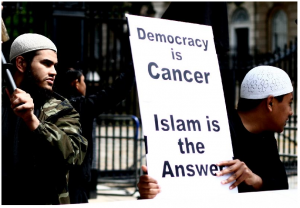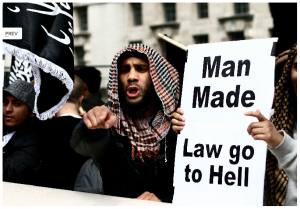- Comms
- Law
- Medic
- News
- Opinion
- Threat Watch
- Training
- Warrior Tools
- Accessories
- Ammo
- Body Armor
- Books
- Clothing
- Commo
- Gear
- Handguns
- Holsters
- Knives
- Long Guns
- ACC
- Accuracy International
- Barrett
- Benelli
- Beretta
- Blaser
- Bushmaster
- Custom
- CZ
- Desert Tactical Arms
- DPMS
- FN
- Forums
- HK
- IWI
- Kel-Tec Long Guns
- LaRue
- LWRC
- McMillan
- Mosin Nagant
- Mossberg
- Para
- Remington
- Rock River Arms
- Ruger Long Guns
- Sabre Defense
- Sako
- SIG Sauer
- SKS
- Smith & Wesson Long Guns
- Springfield
- Styer
- Weatherby
- Wilson Combat
- Winchester
- Magazines
- Maintenance
- Navigation
- Optics
- Sights
- Tech
- Warriors
Posts Tagged Europe
Poland’s Strategy
“Poland’s Strategy is republished with permission of Stratfor.”
By George Friedman
Polish national strategy pivots around a single, existential issue: how to preserve its national identity and independence. Located on the oft-invaded North European Plain, Poland’s existence is heavily susceptible to the moves of major Eurasian powers. Therefore, Polish history has been erratic, with Poland moving from independence — even regional dominance — to simply disappearing from the map, surviving only in language and memory before emerging once again.
For some countries, geopolitics is a marginal issue. Win or lose, life goes on. But for Poland, geopolitics is an existential issue; losing begets national catastrophe. Therefore, Poland’s national strategy inevitably is designed with an underlying sense of fear and desperation. Nothing in Polish history would indicate that disaster is impossible. Read the rest of this entry »
The State of the World: Germany’s Strategy
From STRATFOR:
By George Friedman
The idea of Germany having an independent national strategy runs counter to everything that Germany has wanted to be since World War II and everything the world has wanted from Germany. In a way, the entire structure of modern Europe was created to take advantage of Germany’s economic dynamism while avoiding the threat of German domination. In writing about German strategy, I am raising the possibility that the basic structure of Western Europe since World War II and of Europe as a whole since 1991 is coming to a close.
If so, then the question is whether historical patterns of German strategy will emerge or something new is coming. It is, of course, always possible that the old post-war model can be preserved. Whichever it is, the future of German strategy is certainly the most important question in Europe and quite possibly in the world. Read the rest of this entry »
Russia’s Plan to Disrupt U.S.-European Relations
Posted by Brian in Opinion, Threat Watch on 17/Dec/2011 08:18
Russia’s Plan to Disrupt U.S.-European Relations is republished with permission of STRATFOR.
By Lauren Goodrich
Tensions between the United States and Russia have risen in the past month over several long-standing problems, including ballistic missile defense (BMD) and supply lines into Afghanistan. Moscow and Washington also appear to be nearing another crisis involving Russian accession to the World Trade Organization (WTO).
The crises come as Washington struggles over its many commitments in the world and over whether to focus on present events in Afghanistan or future events in Central Europe. Russia has exploited the U.S. dilemma, using its leverage in both arenas. However, if Moscow takes its aggressive moves too far, it could spark a backlash from the United States and Central Europe. Read the rest of this entry »
Visegrad: A New European Military Force
Visegrad: A New European Military Force is republished with permission of STRATFOR.
By George Friedman
With the Palestinians demonstrating and the International Monetary Fund in turmoil, it would seem odd to focus this week on something called the Visegrad Group. But this is not a frivolous choice. What the Visegrad Group decided to do last week will, I think, resonate for years, long after the alleged attempted rape by Dominique Strauss-Kahn is forgotten and long before the Israeli-Palestinian issue is resolved. The obscurity of the decision to most people outside the region should not be allowed to obscure its importance.
The region is Europe — more precisely, the states that had been dominated by the Soviet Union. The Visegrad Group, or V4, consists of four countries — Poland, Slovakia, the Czech Republic and Hungary — and is named after two 14th century meetings held in Visegrad Castle in present-day Hungary of leaders of the medieval kingdoms of Poland, Hungary and Bohemia. The group was reconstituted in 1991 in post-Cold War Europe as the Visegrad Three (at that time, Slovakia and the Czech Republic were one). The goal was to create a regional framework after the fall of Communism. This week the group took an interesting new turn.
The Mohammed Cartoon Dust Has Not Settled
Posted by Brian in Opinion, Threat Watch on 6/Jan/2011 15:47
The Mohammed Cartoon Dust Has Not Settled is republished with permission of STRATFOR.
By Scott Stewart
When one considers all of the people and places in the West targeted by transnational jihadists over the past few years, iconic targets such as New York’s Times Square, the London Metro and the Eiffel Tower come to mind. There are also certain target sets such as airlines and subways that jihadists focus on more than others. Upon careful reflection, however, it is hard to find any target set that has been more of a magnet for transnational jihadist ire over the past year than the small group of cartoonists and newspapers involved in the Mohammed cartoon controversy.
Every year STRATFOR publishes a forecast of the jihadist movement for the coming year. As we were working on that project for this year, we were struck by the number of plots in 2010 that involved the cartoon controversy — and by the number of those plots that had transnational dimensions, rather than plots that involved only local grassroots operatives. (The 2011 jihadist forecast will be available to STRATFOR members in the coming weeks.)
Groups such as al Qaeda in the Arabian Peninsula (AQAP) have gone to great lengths to keep the topic of the Mohammed cartoons burning in the consciousness of radical Islamists, whether they are lone wolves or part of an organized jihadist group, and those efforts are obviously bearing fruit. Because of this, we anticipate that plots against cartoon-related targets will continue into the foreseeable future. Read the rest of this entry »
Terrorism Hits Sweden
Posted by Brian in News, Threat Watch on 12/Dec/2010 15:05
A Muslim terrorist blew himself up in a Swedish shopping center yesterday.
Here is the Reuters report.
TT said the letter promised attacks over Sweden’s presence in Afghanistan, where it has 500 troops with the U.S.-led NATO force, and the cartoons drawn three years ago by Lars Vilks.
Vilks, the target of several attacks, told Reuters Television he was safe and was getting used to being a target.
“Sweden is panicking of course because this has never been the case before that you have an act of terrorism directed toward the public, and this will of course create fear in Sweden,” he said in an interview.
Now we will see the resolve of the Swedish government. Will they bow to a culture stuck in the 5th century or will they double their efforts to eradicate the enemy.
NATO’s Lack of a Strategic Concept
Posted by Brian in News, Opinion, Threat Watch on 12/Oct/2010 16:14
NATO’s Lack of a Strategic Concept is republished with permission of STRATFOR.
By Marko Papic
Twenty-eight heads of state of the North Atlantic Treaty Organization (NATO) will meet in Lisbon on Nov. 20 to approve a new “Strategic Concept,†the alliance’s mission statement for the next decade. This will be NATO’s third Strategic Concept since the Cold War ended. The last two came in 1991 — as the Soviet Union was collapsing — and 1999 — as NATO intervened in Yugoslavia, undertaking its first serious military engagement.
During the Cold War, the presence of 50 Soviet and Warsaw Pact armored divisions and nearly 2 million troops west of the Urals spoke far louder than mission statements. While Strategic Concepts were put out in 1949, 1952, 1957 and 1968, they merely served to reinforce NATO’s mission, namely, to keep the Soviets at bay. Today, the debate surrounding NATO’s Strategic Concept itself highlights the alliance’s existential crisis. Read the rest of this entry »
Terrorism, Vigilance and the Limits of the War on Terror
Posted by Brian in News, Threat Watch on 5/Oct/2010 15:51
Terrorism, Vigilance and the Limits of the War on Terror is republished with permission of STRATFOR.
By George Friedman
The U.S. government issued a warning Oct. 3 advising Americans traveling to Europe to be “vigilant.†U.S. intelligence apparently has acquired information indicating that al Qaeda is planning to carry out attacks in European cities similar to those carried out in Mumbai, India, in November 2008. In Mumbai, attackers armed with firearms, grenades and small, timed explosive devices targeted hotels frequented by Western tourists and other buildings in an attack that took three days to put down.
European security forces are far better trained and prepared than their Indian counterparts, and such an attack would be unlikely to last for hours, much less days, in a European country. Still, armed assaults conducted by suicide operatives could be expected to cause many casualties and certainly create a dramatic disruption to economic and social life.
The first question to ask about the Oct. 3 warning, which lacked specific and actionable intelligence, is how someone can be vigilant against such an attack. There are some specific steps that people can and should take to practice good situational awareness as well as some common-sense travel-security precautions. But if you find yourself sleeping in a hotel room as gunmen attack the building, rush to your floor and start entering rooms, a government warning simply to be vigilant would have very little meaning. Read the rest of this entry »
Muslim No-Go areas in Europe
Posted by Jack Sinclair in News on 12/Aug/2010 18:36
“Young Muslims continue their violent behavior across Europe. However the media appear shy about saying directly that significant numbers of Muslim immigrants are barbaric thugs, pursuing sharia through rioting and anarchy.
Vlad Tepes blog posted a TV news report from Berlin, where police are struggling to maintain order in certain areas with high levels of diversity. The talking head burbled through a disconnected introduction comparing American ghetto crime to current civil unrest in Germany where police cannot easily enter some immigrant neighborhoods. Interestingly, “no-go area†is the phrase used in German.
“There were always major problems with Arab youth,†reported one officer.
Another described miscreants who declared, “This is mine, this is our area. German police have nothing at all to decide here. Go away already, we’ll deal with things between us.†(Muslims don’t recognize German law because they want a worldwide caliphate ruled by sharia.)
Given the Europe’s disastrous experience with Muslim immigration, a prudent nation would realize the danger of importing historic enemies and end the practice. Wouldn’t it?”
http://www.limitstogrowth.org/wp-content/cache/supercache/www.limitstogrowth.org/index.html
New Report – Sharia Law in Britain: A Threat to One Law for All and Equal Rights
Posted by Jack Sinclair in Law, News, Opinion, Threat Watch on 22/Jun/2010 23:42
Americans can get a glimpse of the kinds of challenges an ever-growing Muslim population will present to Americans by watching carefully what is happening in the UK and Europe, where Islam is more deeply entrenched.
A new report by the human rights organization, One Law for All, has found Sharia Councils and Muslim Arbitration Tribunals to be in violation of UK law, public policy and human rights.
You can download the report, free, here:
Based on an 8 March 2010 Seminar on Sharia Law, research, interviews, and One Law for All case files, the report has identified a number of problem areas with Sharia Law.
The report was released at the time of a 20 June 2010 “One Law for All” rally on the issue of Sharia law.
Below are a few photos of Pro-Sharia counter-demonstrators who showed up at the rally (coming to your streets soon?).
Highlights of the rally:
Human rights activist Gita Sahgal:
“I think it is highly significant that in Britain there has been silence where there should have been condemnation. There is active support for ‘Sharia laws’ precisely because it is limited to denying women rights in the family. No hands are being cut off, so there can’t be a problem.
This campaign stands at the heart of a debate over the future of Britain. It also stands at the heart of global attempts to destroy the most basic rights, to invade liberty and to crush equality and to do this in the name of upholding and promoting human rights. We stand here today facing down forces of racism and fundamentalism as we struggle for secularism.â€
Maryam Namazie:
“The fight against Sharia law is a fight against Islamism not Muslims, immigrants and people living under Sharia here or elsewhere. So it is very apt for the Islamists to hold a counter-demonstration against our rally. This is where the real battleground lies.â€
MC Fariborz Pooya of the Iranian Secular Society:
“The One Law for All Campaign has brought to centre stage an important debate about the kind of society we want to live in whilst defending the rights of everyone irrespective of religion, race, nationality…; this Campaign is truly the voice of the voiceless.â€
Anna Waters of One Law for All’s Legal Team:
“Any reasonable interpretation of the Human Rights Act shows us that there are certain things that it doesn’t allow – and one of the things it doesn’t allow is for a woman to have an inferior or second class status when she stands before a judge in a court of law. This is exactly what is happening…â€
Gerard Phillips of the National Secular Society:
[Sharia Law is] “nothing less than an attack on human rights and on equality…It undermines our democracy. It must be opposed.â€
The rally was held on 20 June to mark the killing of Neda Agha-Soltan at a protest in Tehran last year and link the fight against Sharia in the UK with that in Iran and elsewhere.
The supporters of One Law for All are non-violent warriors, working to protect those who can’t protect themselves – at a very real risk to themselves. I admire their courage. Do you think the threat of Sharia law could never happen in America? It is already happening in the UK, in Europe, and in Canada.





